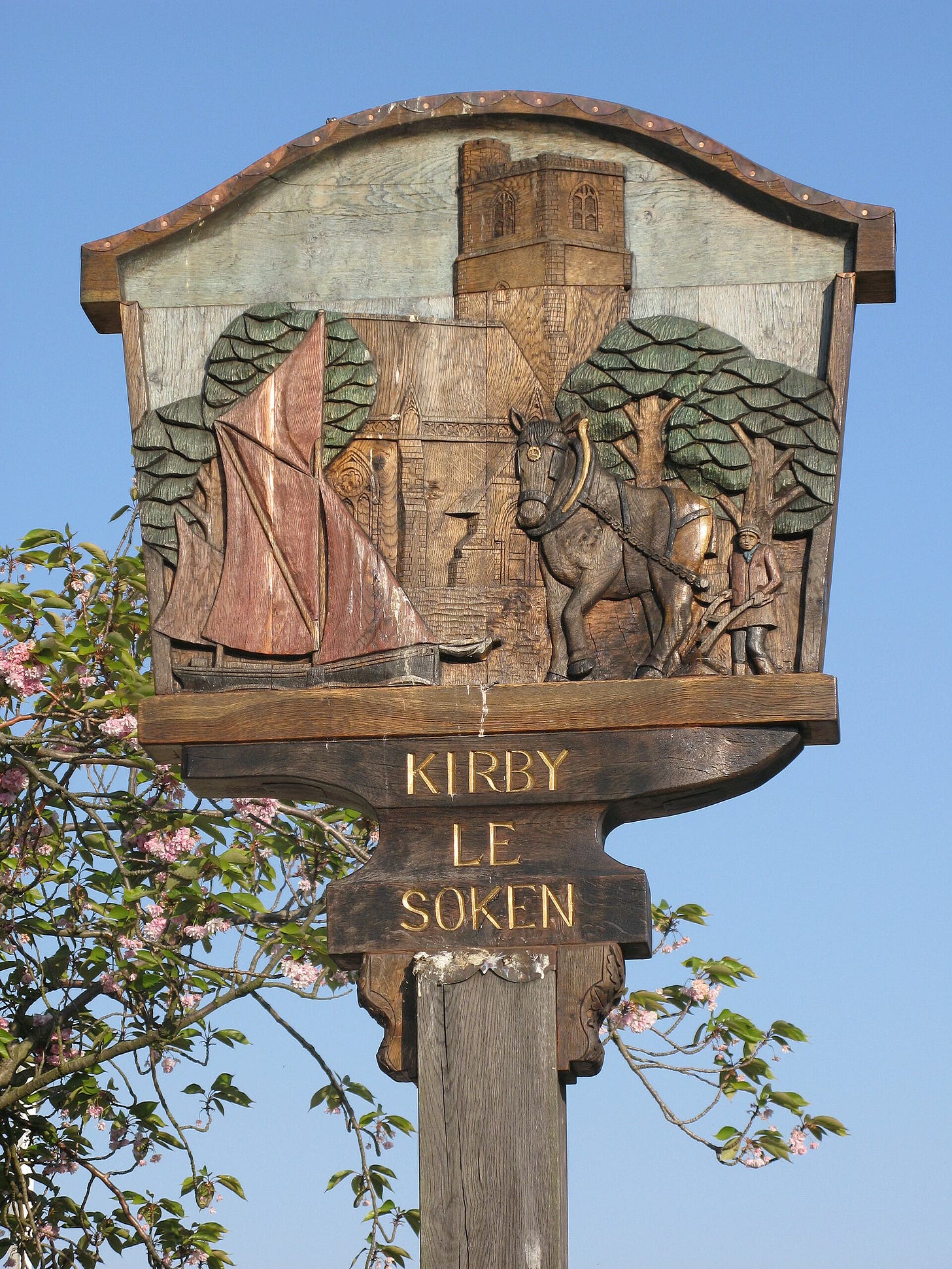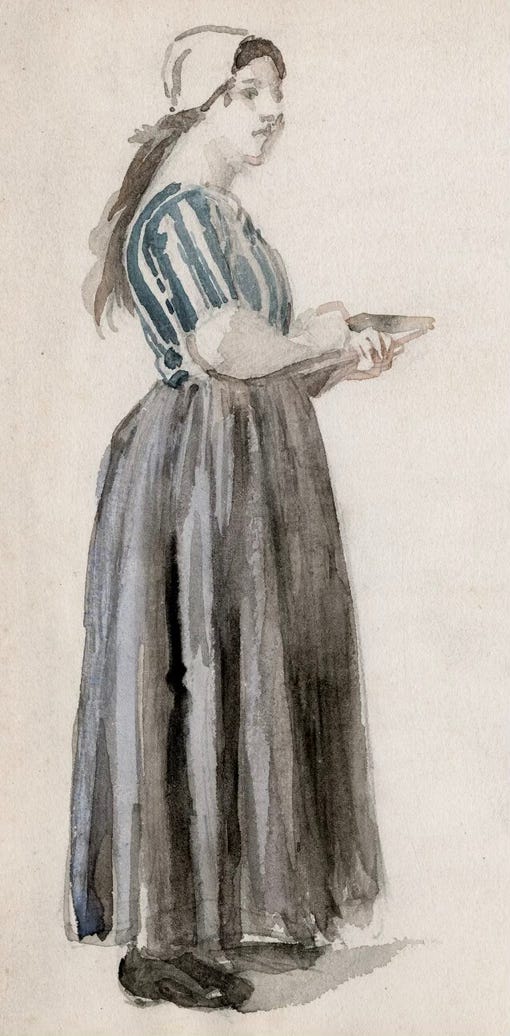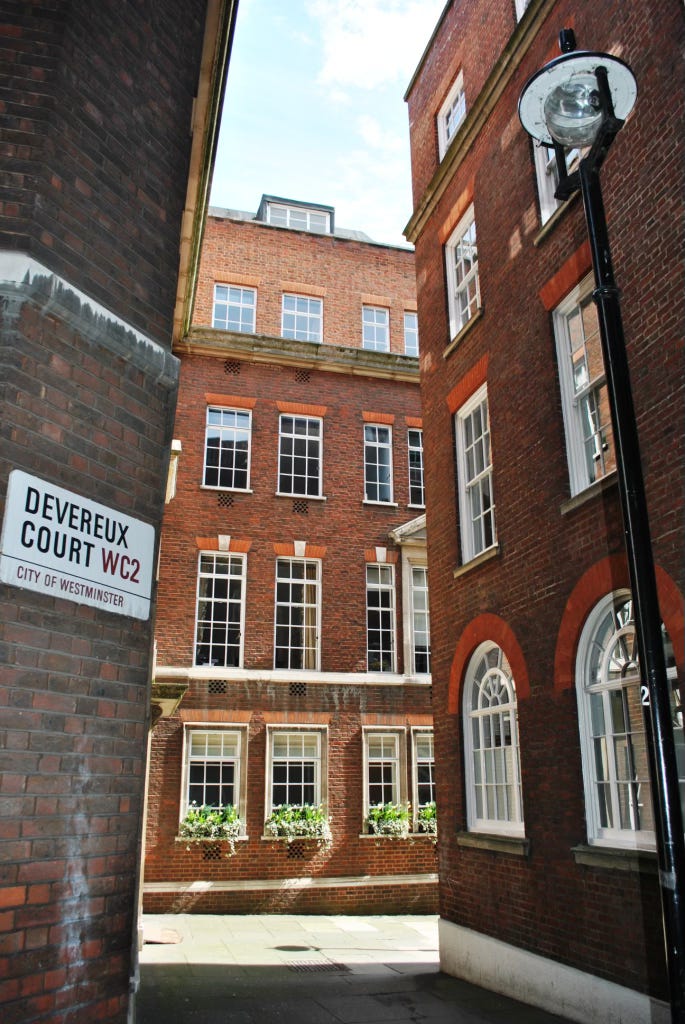Thoroughly Modern Mrs Forsayeth
Lady's maid, private detective, playwright: one Essex woman was many things, but possibly not the wife she claimed to be
Today, I want to tell you about a woman who, if she was living today, I think I'd enjoy having a coffee and a chat with. The force of her personality issues from the archives, and even though there is much about her that is a mystery, she appears to have been a woman who had little truck with authority, and who forged a fascinating life for herself.
Edith was born in the Essex village of Kirby-le-Soken (image by Torecles and used under creative commons)
She was born Edith Salmon, the fourth of nine children born to Benjamin and Mary Salmon, who lived in Essex. Little Edith grew up looking up to her father, who was a police constable for over 20 years. Benjamin moved his family around - from Lexden to Kirby-le-Soken (where Edith was born in 1860), briefly to Pimlico in London, and then back to Essex, living in Dovercourt and Elmdon. However, this Suffolk-born man lived primarily in his wife's home county, and until he retired on his police pension, remained working in the police.
At first, Edith looked as though she was going to conform to Victorian stereotypes. Her family was not rich, and so, when she left school, she moved to London to work in service. She worked as a lady's maid in east London, employed by a wealthy widow, and working alongside eight other servants. She is absent from the 1891 census, when she would have been 30, but I think I know why. At the time of the census, Edith was heavily pregnant.
Edith was working as a lady’s maid in the early 1880s (painting by Joan Berg)
She claimed to have been married to a Mr Forsayeth, and certainly, her son was named John Richard Martin Forsayeth in the spring of 1891. He was born at Edith's parents' house. But there is no record of a marriage for Edith and Mr Forsayeth; however, there was an Irish medical student named John Richard Martin Forsayeth living in Essex at the time. He was ten years younger than Edith (who would later fudge her age, knocking a few years off), but he was not married to her - in fact, a few years later, it seems he married another woman, and had two children by her. The fact that Edith named her son the exact same name as this man would suggest a rather strong link, though.
Edith had another child in 1898 - Iris May Forsayeth - but did not register her birth. By 1901, she described herself as a widow. In this year's census, her son John was at home with Benjamin and Mary Salmon, but Edith and her daughter were visiting the Salsbury family in West Ham. As a single mother of two, Edith was now working again, but not as a servant: she made clear that she was a private detective, working for herself. Her father had inspired her interest in detection, and so she had set up on her own to investigate cases as a female detective.
How successful Edith was is not known, although she certainly had family and friends who could help look after her children, thus enabling her to take on cases. It would have been harder for her, as a woman on her own, to establish herself; she did not have the resources to have an office in London, as many male detectives had, but she was certainly determined, educated, and had a good sense of humour. This was perhaps necessary to forge your way in this career.
Edith lasted less than a decade as a private detective, and perhaps far less. The 1911 census saw her living in her own home in Kew Gardens, still claiming to be a widow, but now using her good communication skills to work as an author and playwright. She had her daughter Iris, now working as an actress, living with her, but also gave her son's details on the census form. These were crossed out by an enumerator, as John was actually not living at home, having enlisted as an apprentice in the merchant navy aged 17, and currently stationed in Barry, South Wales. In the census column where afflictions had to be listed, Edith entered humorous details; for her, she wrote that she had been a 'lunatic since age 39'. Iris 'talks out of my hat since age 12' and John was 'dumb to all decent language!' since the age of 17. A humourless enumerator took pains to scratch out these comments.
Just as there is no record of Edith's marriage, there is also no record of her husband dying. The first marriage entry I can find for her is in 1913, when she married London barrister Frank Wildey-Wright in Essex. He was 14 years her junior. Edith, Frank and Iris set up home in Chiswick, where they are listed in the 1921 census. Frank died three years later, aged just 50. His probate entry notes that probate was granted to a South African attorney, and that he was living at Devereux Court, Strand, at the time of his death. There is no mention of Edith.
Devereux Court, where Edith’s husband Frank died in 1924 (photograph by Elisa.rolle and used under creative commons)
At this point, Edith vanishes from the archival record. Her son, John, married and after World War 1, settled in Hammersmith. He died in 1947. Daughter Iris never married, but worked as a bank clerk, lived in Buckinghamshire and Somerset, and died in 1975. But much about their mother remains unknown; what I do know about her, I like, though. She appears to have been a modern woman who had children out of wedlock, had various jobs, had ambition, and had a close, jovial relationship with her son and daughter. She didn't take the censuses seriously - who knows if she was really an author? Was she teasing the enumerator about her writing ability, evidenced in the jokey comments about her family, or was she seriously trying to make a living through her writing? She was something of a mystery and neither a first marriage nor her death can be found.
But Edith was certainly a policeman's daughter who had the confidence to leave the world of service and attempt to make it as a private detective at the start of the 20th century. She sounds a fascinating woman.







Nell, I would be very interested to speak to you about this post. I know the story behind the history of Edith Salmon and Dr John Richard Martin Forsayeth as I am a direct decendant of JRMF through an affair he had with my great grandmother. The saga of Forsayeth's life is contained in my book "Gardening - It's in the Blood". I note you say in your post "married another woman". In 1891 he "married" my great grandmother, six months after the birth of his son (same name too) with Edith. The marriage to my great grandmother I believe was a sham marriage although I have the certificate from August1891 Do you know the place where Edith worked as a servant? I also know about Edith's other marriage and with whom. JRMF did formally marry later and had more children descendants of whom I have met.